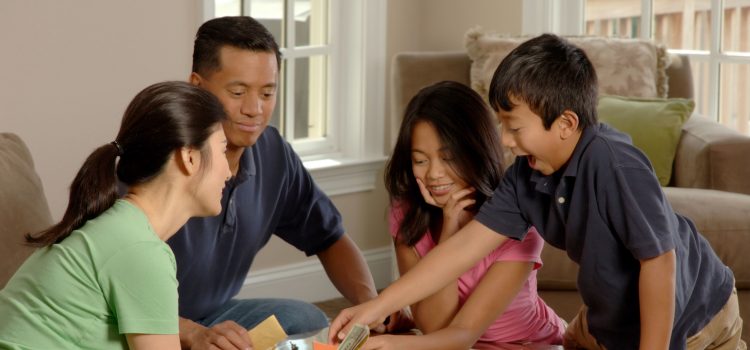
“Remember who you are.” It’s a simple phrase, but one with deep meaning. I have said it many times as my children have walked out the door – off to school, out with friends, or on a date. But in this instance, let’s add one more line – “Remember who you are…and where you came from.” Remembering is powerful.
But today, helping youth remember is more than that. It is vital. Youth are getting sucked into a cycle of instant gratification and messages of, “you’re not enough” every time they log onto social media. How can we help? We can tell them to remember who they are. Reminding them of their past is a sure-fire way for them to overcome the hardships life throws at them. Why? Because their ancestors did. I realize it’s not the cure-all for happiness, but it’s a meaningful step in the right direction.
There are the whys of remembering and the hows of getting it done. This article offers both.
In this age of instant gratification, kids get bored easily. It’s easy to slap a screen in their hands to keep them occupied, but as parents and grandparents, we can give them more. Maybe a screen with some family history attached or a creative project that brings family stories to life.
At RootsTech recently, I was struck by what Steve Rockwood, CEO of FamilySearch International, had to say about remembering. We talked about it for a bit. He said remembering helps us to connect. He said of youth: “They want to discover who they are and what they are.” Don’t we find this to be true as parents with our children? When I take the time to sit down and talk with my children, even about my own life, they are instantly captivated – especially my younger children. So why remember? Here are four perfect reasons:
Remembering family stories gives kids confidence.
Social media is damaging kids, remembering will only help them.
Everyone deserves to be remembered.
It is magic when generations work together.
1. Remembering family stories gives kids confidence
A few years ago at RootsTech I had the chance to meet Bruce Feiler, New York Times Best-Selling author and columnist. He has written The Secrets to Happy Families and books on the power of story. He told me that children are more confident when they know (or in other words, remember) where they came from. To read the full story and about the study he cites, click here.
But aside from all the studies, I have personally learned this to be true. Some of the happiest moments with my kids are spent remembering. Remembering great-grandparents, remembering how their mom and dad fell in love, and even remembering the days they were each born. Just last night I was talking with my oldest son, who is now 26, about where he was when his sister was born. I told him about how his Great-Aunt Randy rushed to the house to watch him.
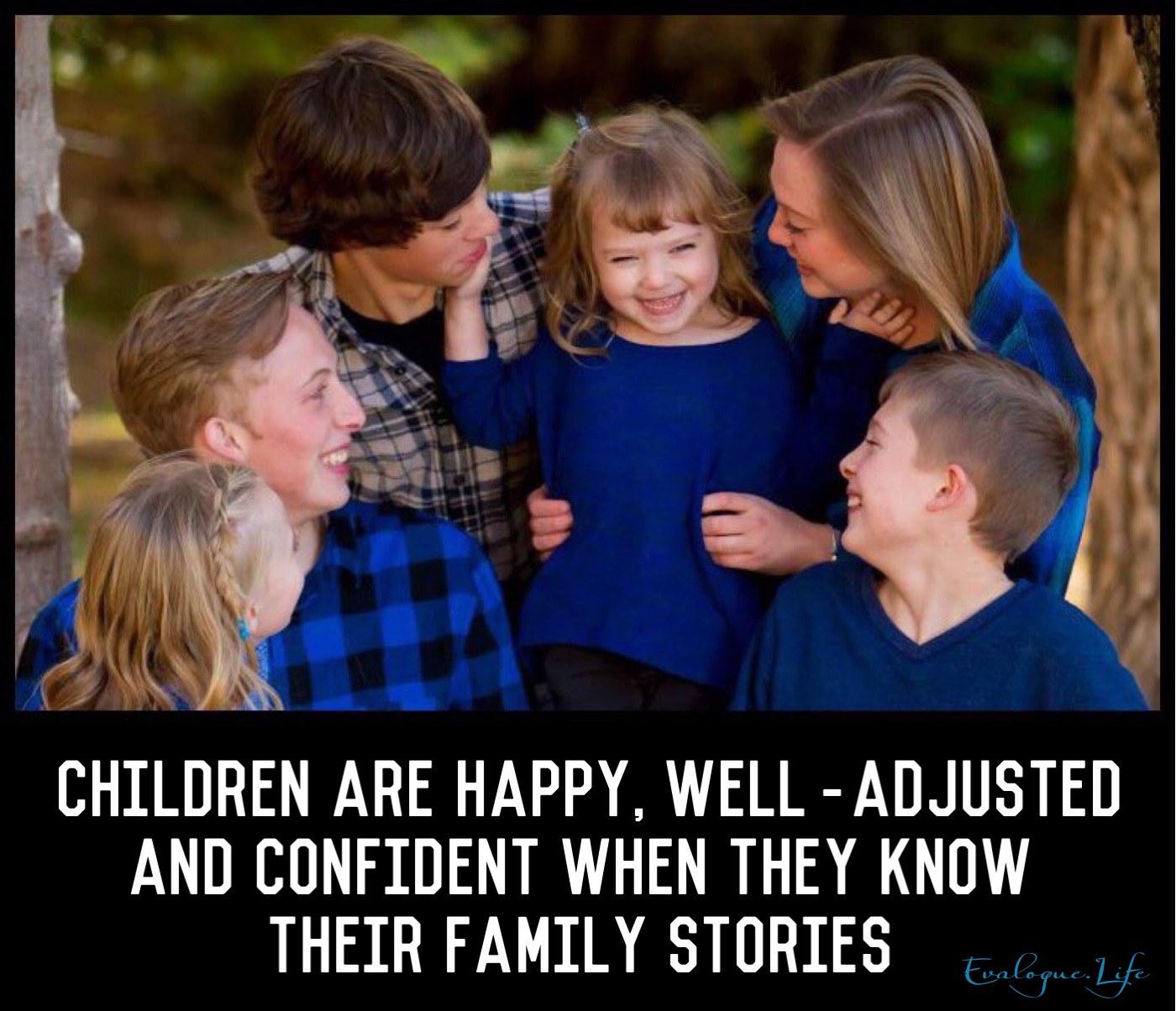
We started sharing memories of times he spent with her when he was young. She died tragically in a car accident about 15 years ago, so the memories were warm and needed. We had a few moments of choice remembering – remembering how much he was loved and adored by his great aunt. Don’t we feel better ourselves when we know we are loved and adored?
To help your children learn that confidence by remembering, make sure they know the answers to these basic questions:
- Where did their grandparents grow up?
- Where did their mom and dad go to high school?
- Where did their parents meet?
- Do they know an illness or something really terrible that happened in your family? If so, what?
- What is the story of their birth?
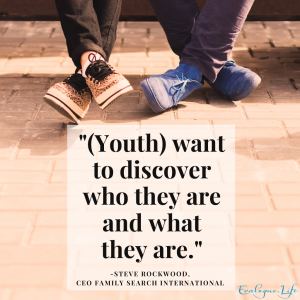
2. Social media is damaging kids; remembering will help them.
This one is HUGE because social media is harming our kids. Even the little ones, folks, and science is now telling us so. A survey conducted by the Royal Society for Public Health asked 14 24-year-olds in the UK how different social media channels had an impact on their health and wellbeing. The survey results found that Snapchat, Facebook, Twitter, and Instagram all led to heightened feelings of depression, anxiety, poor body image, and loneliness. There is a full article from Child Mind Institute about it.
When my oldest was entering the teen years, we made a rule that our kids had to be 12 to get a phone and to be on social media, but now that all things social media are so in their face, we are re-thinking that plan. As an adult, I love to see what my dear friends and family are doing, but I often think of how glad I am it wasn’t around when I was growing up. The need to look as good as everyone else and the pain that comes from cyber-bullying is real for everyone, but especially devastating for kids. They get sucked in and it’s hard to pull away. An article in Psychology Today tells us that tweens’ brains are not wired to handle social media.
“A tween’s underdeveloped frontal cortex can’t manage the distraction nor the temptations that come with social media use. While you start teaching responsible use of tech now, know that you will not be able to teach the maturity that social media requires. Like trying to make clothes fit that are way too big, they will use social media inappropriately until they are older and it fits them better,” the article states.
To read the full article, click here. I’m not saying to take all social media away from kids. Moderation is key, but I am saying that helping them remember their family stories can be a powerful counter-balance to social media time. Family stories and activities centered around them can be a grounding influence in a frightening online world.
Consider another source, the late social media critic Collin Kartchner, who wrote about the damaging effects of social media on youth. He encouraged families to opt for flip phones for kids and to offer them alternatives to social media. His ideas got me thinking that remembering our families is another concrete alternative. Learning about family stories together with our children is fulfilling. It bonds our relationships in the present, as well as to the past.
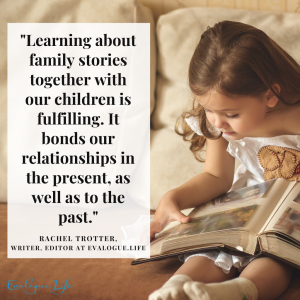
3. Everyone deserves to be remembered
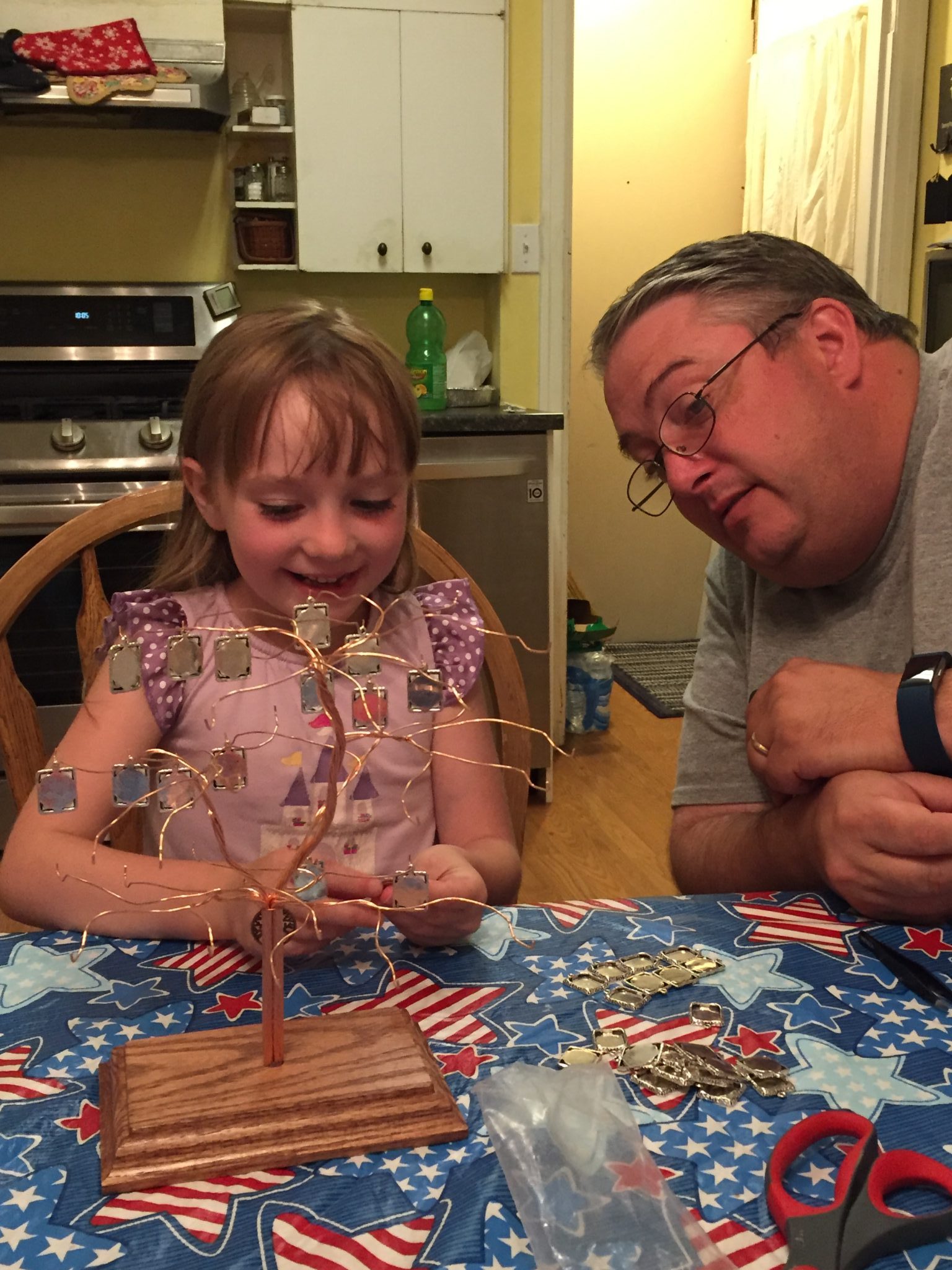
“Everyone deserves to be remembered,” Rockwood said at his keynote address at RootsTech this past year. He mentioned it several times through his message. Every time he said so, the hair on the back of my neck stood up. I get chills when I think of it even now. Yes, everyone does deserve to be remembered.
Now is the time to change the perception that it’s the older people’s job to do the remembering, that an uncle or grandma with nothing else to do will catalog all those stories. Rockwood said that at FamilySearch they are seeing kids younger and younger get involved. “They have a natural appetite well before they are teenagers…we are changing our focus from teenagers to much younger,” Rockwood said.
We have been trying this at home. My 7-year-old daughter and I often take walks together and family stories are among her favorite subjects. The other day she and her dad were putting pictures on a family tree and he told her about her pioneer ancestors. “I’m related to pioneers?” she asked with a squeal. After her dad’s simple, “Yes,” she clapped her hands and jumped up and down. Who knew a simple discovery was better than ice cream on a late summer night? I felt emotional as she touched the photo of her great-grandmother and said, “I think me, you, and her all look alike.” Her great-grandma has been remembered – she deserves that and we all felt connected at that moment.
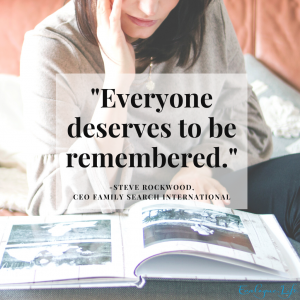
4. It is magic when generations work together
Let’s be honest. A grandparent will basically do anything for their grandchildren. That’s why it made so much sense when Rockwood conveyed that idea. “When youth are doing family history they always bring mom and dad and grandma and grandpa with them,” he said.
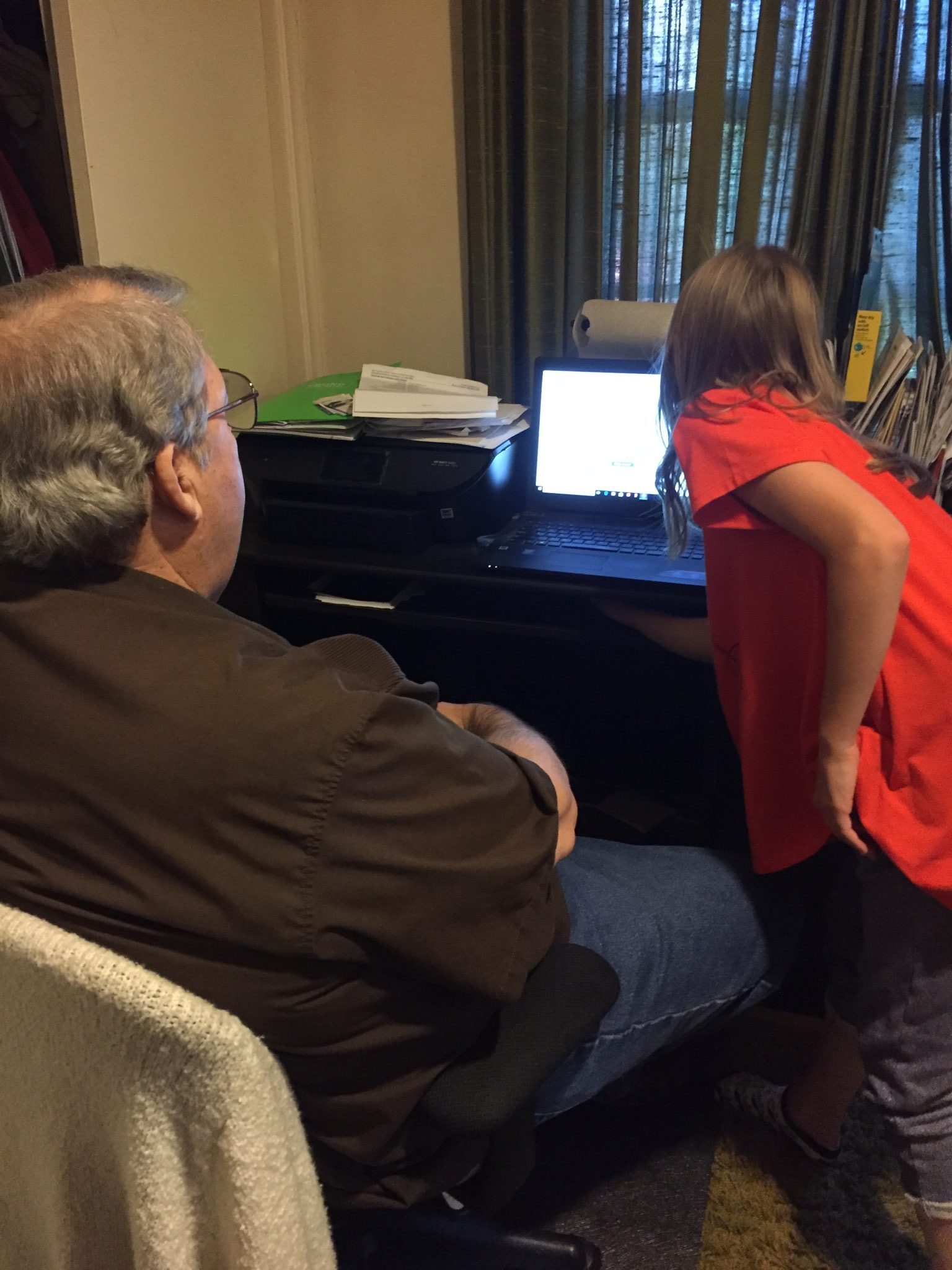
I saw that come to life a few years ago when my then 12-year-old daughter snuggled up next to her grandpa. “Grandpa, would you like to set up a FamilySearch account? I could help you.”
“Sure, I would like that,” came his easy reply. My daughter looked up at him.
“Were you thinking we should do that now?” he said with some hesitation.
“Yes!” she said as she hopped up, lending him her hand.
At that, the two went to the computer and he is now officially “set up” on FamilySearch. Many discussions have followed. What I watched that day was magic as an eager young girl shared and remembered with her grandpa. And he, a willing participant, because she simply asked. The little children will lead them, right?
Remember who you are
As we have said numerous times, adults and children alike are hard-wired for the power of story. And as an interesting side-note, great stories nearly always include a moment where the hero must dig deep and remember his or her purpose. The book How to Storyboard shares this gem,
Our hero hears this command next: “Remember.” In The Lion King, as in many scriptural tales, a command booms from the heavens, “Remember. Remember. Remember.”
When we get youth telling family stories from a tiny age, it helps ground them in the advice to “remember who you are.”
So now we’ve explored the importance of remembering…what’s next? How do we do it? Here are some ideas to get the ball rolling.
Make a family tree, literally.
Introduce them to the Memories app (or any family history app).
Visit a cemetery.
Take a family vacation to a “remember” place.
Make a family recipe.
Journal together.
Play a “remember” game.
Make a video.
Interview your kids/have them interview you.
1. Make a family tree, literally
This exercise can be simple and fun for the whole family. There are endless templates and ideas on how to make family trees. In our family, we found some three-dimensional family trees (pictures at right) from thetapestree.com.
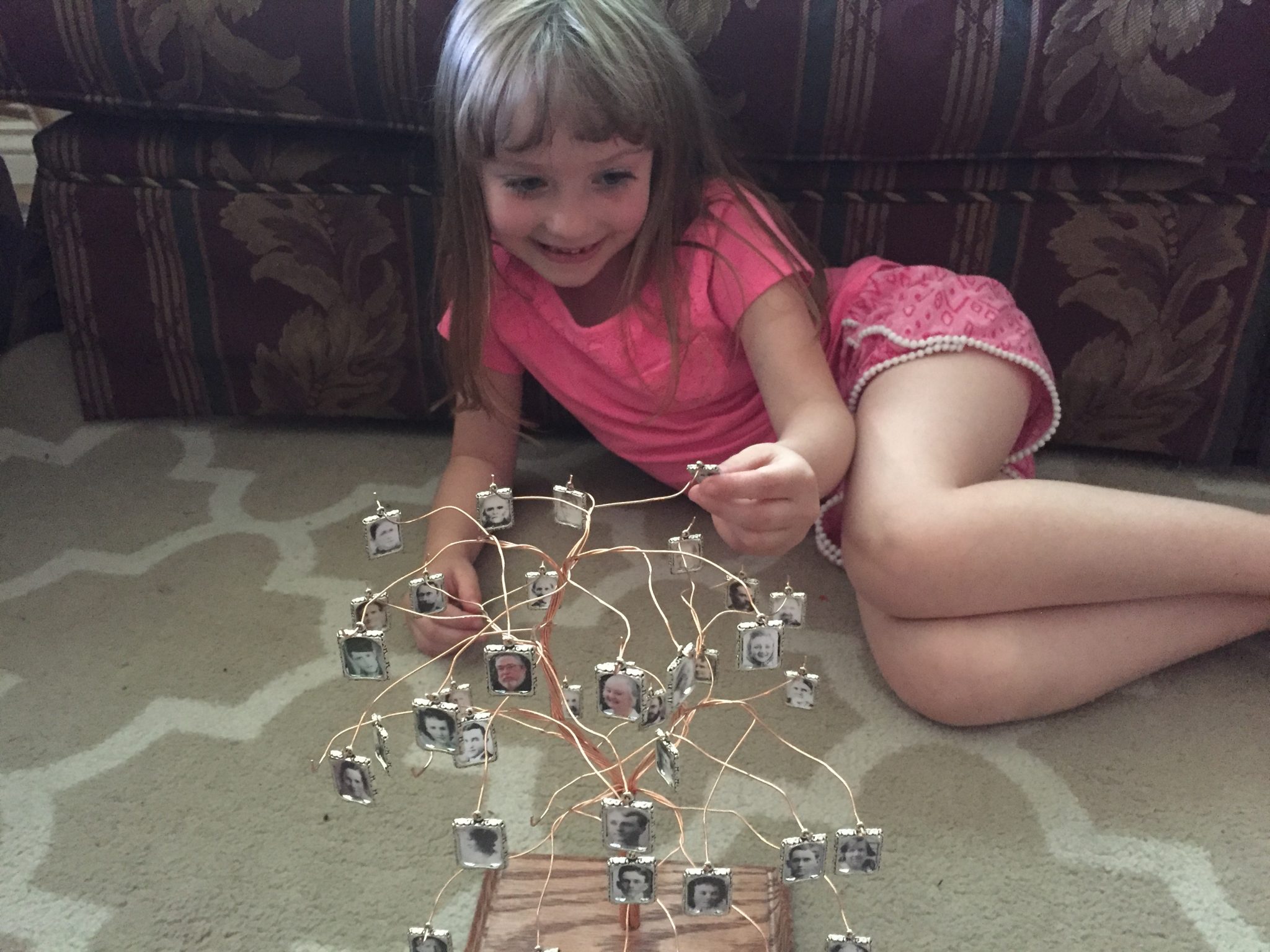
We printed small photos of each member on our family tree and it has created hours of conversation, careful precision cutting, and placing them in the right spots on the tree. But there are hundreds of other templates for family trees, too. It makes a difference when kids can see a tangible name, date, and even a photo. Here are a few links to printables I really like: FamilySearch Keepsakes, FamilyTree templates, and genealogy for children. There are thousands of them out there, but these have some of my favorites.
2. Introduce the Memories App
The memories app by FamilySearch is a treasure. Here you can upload audio, photos, journal, etc. But what I like best is that it’s user-friendly and easy for children to figure out. They can interview a loved one right within the app and upload it to FamilySearch. The great thing about it is there is no damaging content, cyberbullying, or risk of detrimental behavior as a result. This is screen time that is valuable and worthwhile.
3. Visit a cemetery
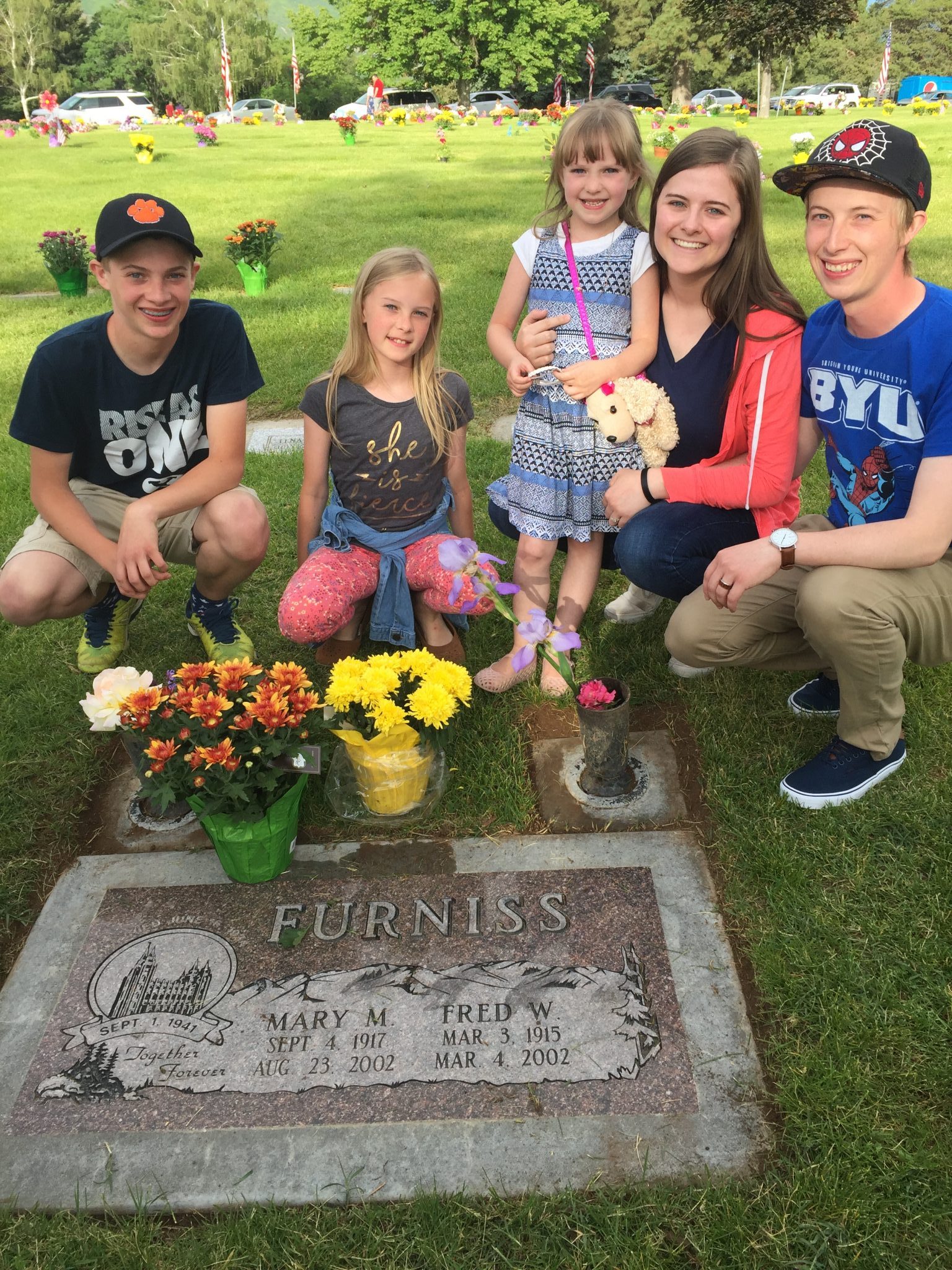
This may sound creepy, but I promise, it’s not! This has become a new trend in our family. We often visit cemeteries on Memorial Day, but we have started incorporating a cemetery visit into our family vacations or day trips. If we happen to be in an area where we know a family member has been buried, we stop. We visit the grave, talk about the person, and encourage our kids to write about the experience. More often than not, it creates great conversation and we feel uplifted. Sometimes we visit military cemeteries, too. It helps our children understand the sacrifice for freedom and to love and respect all who have gone before us. Different cultures view death in different ways and it proves to be a valuable teaching experience.
4. Take a family vacation to a “remember” place
Family vacations are the best part of life, right? A road trip is a great time to help kids remember who they are and if not, you can do it plenty after arriving. We have had the chance the past few years to visit specific places where we have family history. Plus, almost anywhere we go we can find a way to talk about family stories. One key thing Rockwood said recently at RootsTech that really stuck with me is to take our children to the places where our ancestors lived. “Walk where they walked, eat where they ate,” he said. This helps us to remember and connect. If you can plan out an extensive vacation where family history is key, that is wonderful. If not, try to figure out a way to weave some remembering moments into your trip. For specific ways to create vacations memories, click here.
5. Make a family recipe
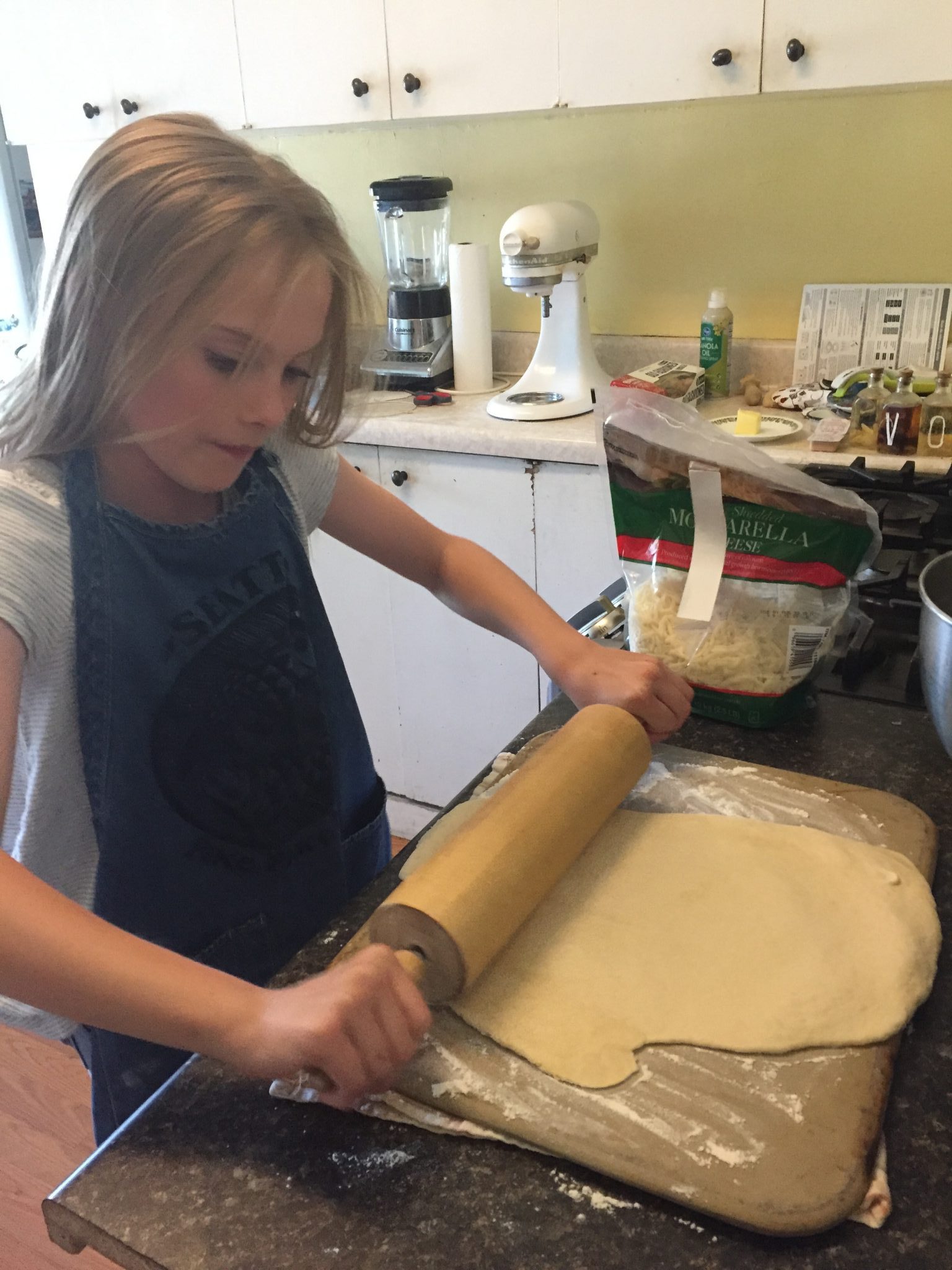
This is one of my favorite ways to remember. My extended family has created cookbooks as a way to share family history. Mine are completely hashed! They are my favorite recipes because they are tried and true and as I cook them, it provides great conversations with my kids. We talk about the person who submitted the recipe and why we love to eat it! It is the perfect way to remember because food is positive and the end result creates fully bellies and something we want to do again and again. Food and remembering is the perfect recipe for combatting boredom and it creates great conversation starters. Read how some of the best family interview questions start with food.
6. Journal together
This seems simple, but does require effort. My best advice is to set aside time each week to have some quiet journaling and writing time, even if it’s drawing time for the younger ones. They can draw out family stories or you can even write for them. I have done this when my kids were younger and remembering those memories years later is priceless.
7. Play a “remember” game
Games like Pando or the Ungame are great conversations starters and great ways for us to remember those who have gone before or even get the conversation going about recent family memories. Both of these games are card games with no winner or loser – they are just games to get the conversation going. Since our family likes to compete, we often add an element of competition – we just can’t resist. But our kids beg to play these games weekly. You can also make up some remembering games. A picture match game with old family photos or a Jeopardy game can be a blast with a small effort.
Related: Is Family History for Kids?
8. Make a video
Instead of letting the screens do all the work – put your kids to work on the screens. Apps like iMovie, Adobe Spark, and Animoto are great tools for kids to make family history videos. Click here to learn more about these programs. They don’t need to look professional and they can let their creative juices flow. If you can give them access to old family photos or even videos, these programs can easily guide them to make these memories come alive. If you don’t have old photos or videos, let them do something with grandparents, parents, or even themselves. No matter what they do, if it includes them or someone they love, it will mean something later.
9. Interview your kids/have them interview you
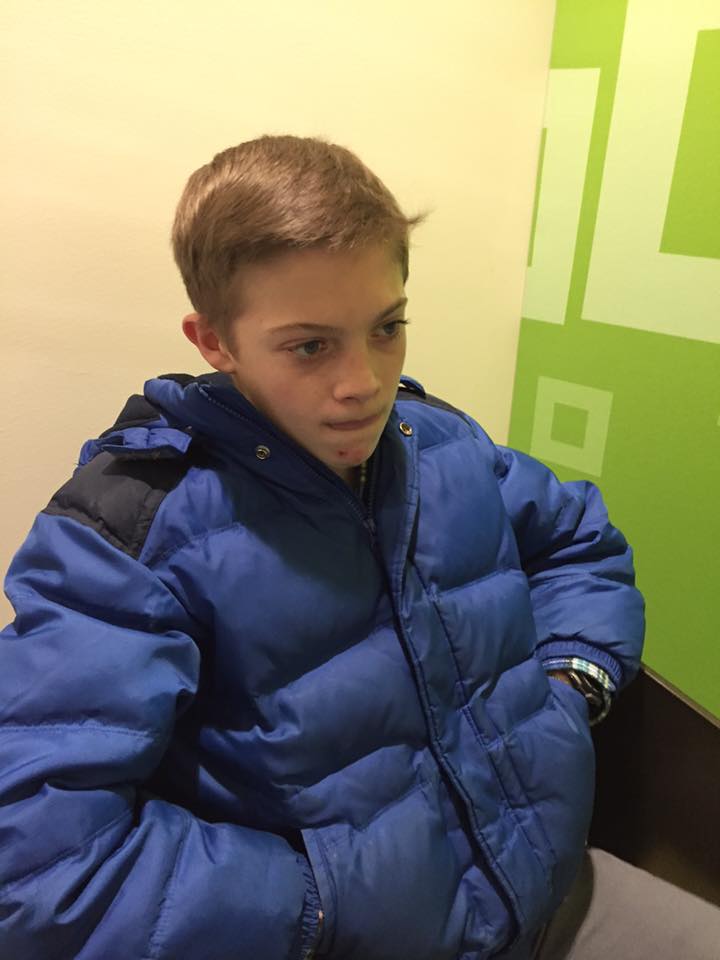
One of my most poignant moments as a mom was when I stepped in on an interview my 14-year-old son was doing at the Family Discovery Center in Salt Lake City. He was being interviewed by someone on a television screen, but I was enlightened when he talked about his favorite vacations and when he described each family member in one word. I gained insight into who he was and some of his inner thoughts. Pull out your phone or recording device (we have some favorites) and conduct a little interview to get to know your children. It will also help them become more self-aware. There may be no better way to help young people “remember who you are” than to have them articulate their own answers, especially if it is recorded.
Related: Five Things I learned at the Family Discovery Center
Then, let them ask questions of you or of a grandparent. Not only are these sweet and tender moments, but they will be cherished forever! Listening to someone’s voice after they are gone, or listening to a child’s voice once they are grown is priceless. Do it now and it will be enough.
As a mom, I’m not perfect at all this. I try. I try to help my children remember who they are on a daily basis. I fail some days and some days they do just sit in front of the television or look at social media a little too much. But there are some days that are different. We remember. We make memories and hopefully they balance out the TV days.
Here are some links to other articles to help you create memories with your kids and above all else, to help them remember:
5 things Bruce Feiler taught me about happy parenting
Family Vacations Create Great Family Stories
Is Family History for Kids? Yes!
Children, Technology and Family History = Magic
How my Grandparents Instilled a Love for Memorial Day
 Rachel J. Trotter is a senior writer/editor at Evalogue.Life – Tell Your Story. She tells people’s stories and shares hers to encourage others. She loves family storytelling. A graduate of Weber State University, she has had articles featured on LDSLiving.com and Mormon.org. She and her husband Mat have six children and live on the East Bench in Ogden, Utah.
Rachel J. Trotter is a senior writer/editor at Evalogue.Life – Tell Your Story. She tells people’s stories and shares hers to encourage others. She loves family storytelling. A graduate of Weber State University, she has had articles featured on LDSLiving.com and Mormon.org. She and her husband Mat have six children and live on the East Bench in Ogden, Utah.
Questions Everyone Should Ask

Don't have regrets. Preserve a life story now with our all-time best questions. Interview a loved one or prompt your own personal history. Do it now, and it will be enough.

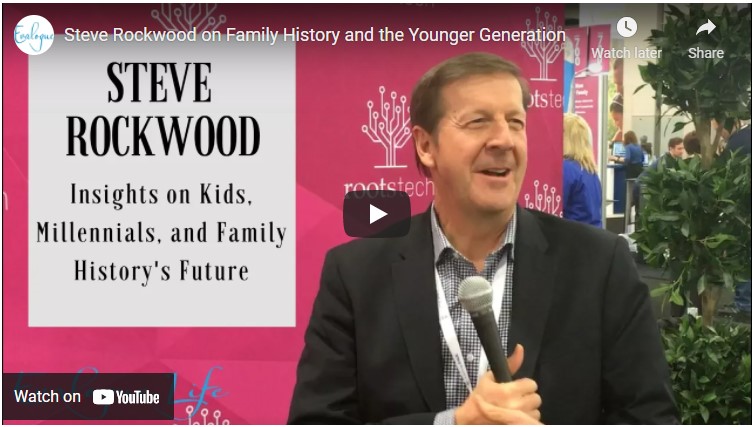



Pingback: Remembering ancestors. Why is it important to you?
Pingback: Mr. Rogers on suicide, anger and revelation through silence - Tell Your Story with Evalogue.Life
Pingback: The Power of Helping Your Children Remember Who They Are | Meridian Magazine
Pingback: Work - A Critical Piece to Your Story - Tell Your Story with Evalogue.Life
Pingback: The Power of Remembering Your Ancestors | Meridian Magazine
Pingback: Why do you love to remember your family history?
Pingback: Why do you love to remember your family history?
These are some great ideas! Thank you for sharing! I also wrote about sharing family stories this week, but your ideas are much more in-depth! I love making old family recipes and using them as a launching point for stories about my family. Thank you!
Thank you for your kind words. I love making family recipes too. Not only do you get good food, but good conversation!